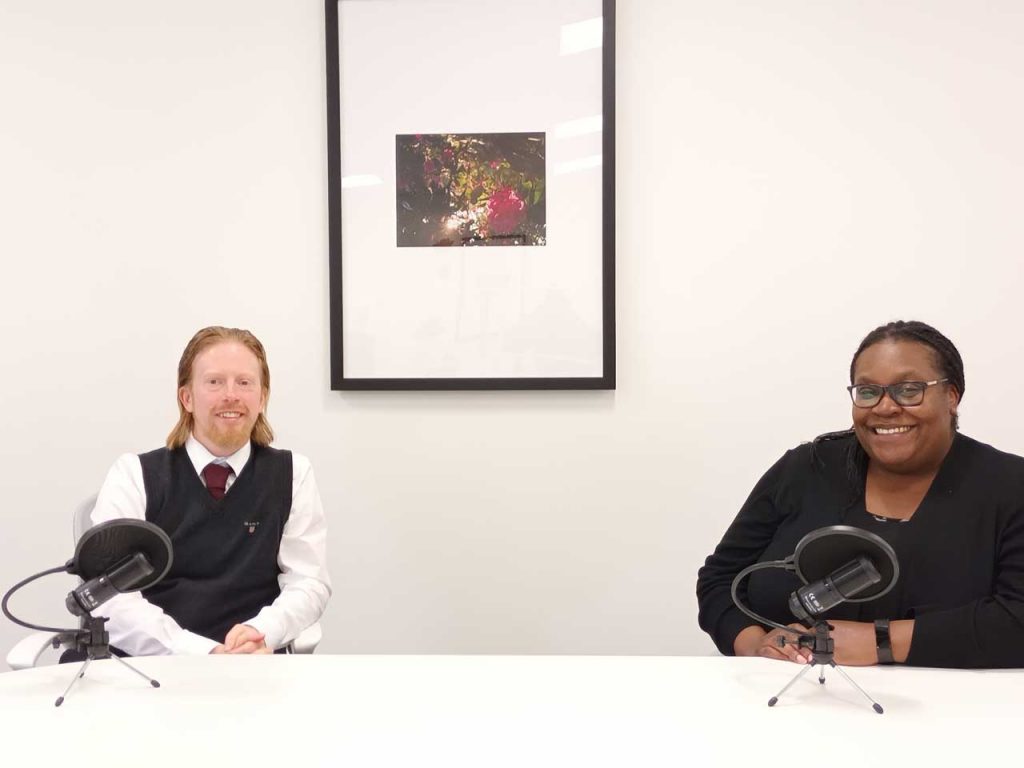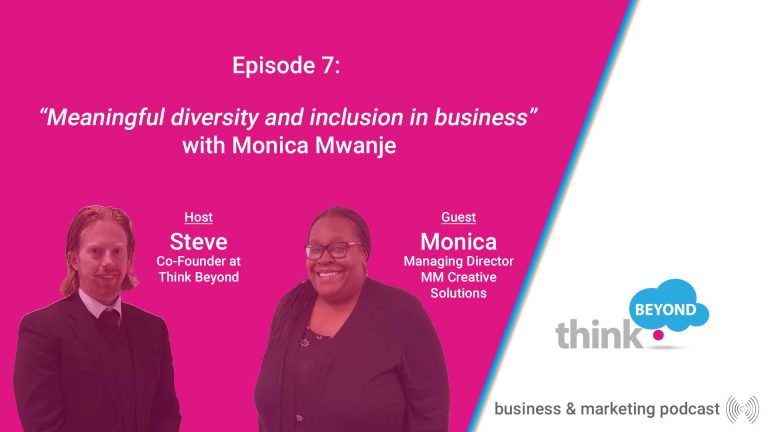We are now into the second half of our 12-part series of podcasts. With topics from customer experience to social responsibility already covered, we now take a look at meaningful diversity and inclusion in business. To assist us with another topic that is important to us is the wonderful, Monica Mwanje, owner of MM Creative Consulting. Read on to find out more.
Monica Mwanje talks meaningful diversity and inclusion
Monica is the founder of MM Creative Solutions, through which she works with different organisations, helping them to grow and transform their businesses. She also has a degree in chemical engineering and entered the nuclear sector straight from university. Monica has transitioned through various roles in the nuclear and engineering sector, including management, engineering and business development roles. Now, as her own boss, Monica has the freedom to help these organisations, particularly around the nuclear and energy sector.
What it means to have meaningful diversity and inclusion
Monica suggests that inclusion means including people, making them feel welcome and tapping into their skills in the workplace. This allows people to flourish and to thrive. This also brings different individual skills, identities and traits into business. Monica also highlights that sometimes people may appear to not be performing but businesses don’t always try to understand what they need to perform.
Meaningful diversity in business means “really having access to those range of perspectives, having access to that range of skills”. This allows new ideas and new ways of thinking.
Hybrid working and how it impacts inclusion
Where hybrid and home working were touted as a ‘levelling up’ in the workplace, Monica isn’t so sure this is the case. She describes how a lack of inclusion, favouritism, pay rises and promotions still exists. Monica highlights the need for leaders to have the skills to tackle the root causes of exclusion, so that everyone is included “regardless of location”.
Inclusive leadership involves understanding the issues and barriers in place that may hold back some people in the workforce. Once we practice and develop these skills, we can begin to question the recruitment, performance and management policies.
Lack of action holds back diversity and inclusion
Monica is unambiguous in her view that organisations and leaders who say that they will take action on DEI need to take action. In her words, “it’s not rocket science”. She also elaborates that if a workplace has had racial prejudice, “is that really on the black employees or the Asian employees to fix and solve when it may be that they are not in the majority group within that work environment”. This is down to the leaders to live to the values they espouse and follow through on inappropriate behaviour. Effectively, this means taking action on discriminatory, homophobic or bigoted behaviour if you say that you have a zero-tolerance approach.

Enhancing diversity at board level
Steven asked about board diversity beyond ethnicity and gender, encompassing socioeconomic, sexual orientation, disabilities, cultural, neurodiversity etc. Monica suggests that the root of this may be in the circles in which recruitment for these roles happen. Even though some diversity is measured and some is not, the criteria for board selection may be so narrow “that it puts people off from applying”. As a result, we need to review the routes into the boardroom and how that process operates to bring new candidates into scope.
Interestingly, Steven expands on this point adding that personality or ‘fit’ was ranked as the number one factor in board selection. Unfortunately, this may contradict with the need to boost neurodiversity, cultural diversity, personal values and traits. This ultimately leads to the question of whether personality fit is actually masking the lack of diversity.
Gender diversity in nuclear needs improvement
Monica attended a panel at the Nuclear 2021 Conference in London. The nuclear sector deal has a target to increase the number of women in nuclear to 40% by 2030. A previous study measured women in nuclear at 22% but this is now at just 20%. This is challenging to understand when the female identified gender percentage is around 51% of the population. She expands that although perhaps not sufficient women are entering engineering and scientific disciplines, there are lots of other roles across the sector. This includes jobs such as project managers, marketing, finance, management and other functions.
Furthermore, Monica echoed her earlier comments about understanding the paths into the industry. This enables some root-cause analysis on why women are not making it through into other roles in the industry. It would also be helpful to understand why the percentage has dropped to 20% and if company policies have caused women to exit the industry.
A final thought from a meaningful discussion
In our relatively short discussion, Monica covers some of the root causes behind the disconnect between public statements on DEI and the real action. Monica is a passionate advocate for meaningful action and change to leverage the benefits that companies are missing out on.
We would like to take this opportunity to thank Monica of MM Creative Solutions for her contribution and for taking the time out of her busy schedule.
Think Beyond is a business and marketing consultancy that helps businesses to find new opportunities and accelerate business performance.
To listen to the podcast, simply follow the links below to listen on Anchor, Spotify or Google Podcasts.
Why not also take the opportunity to listen to a fantastic discussion on social responsibility or a deep-dive on leadership styles.
Thank you for listening.




